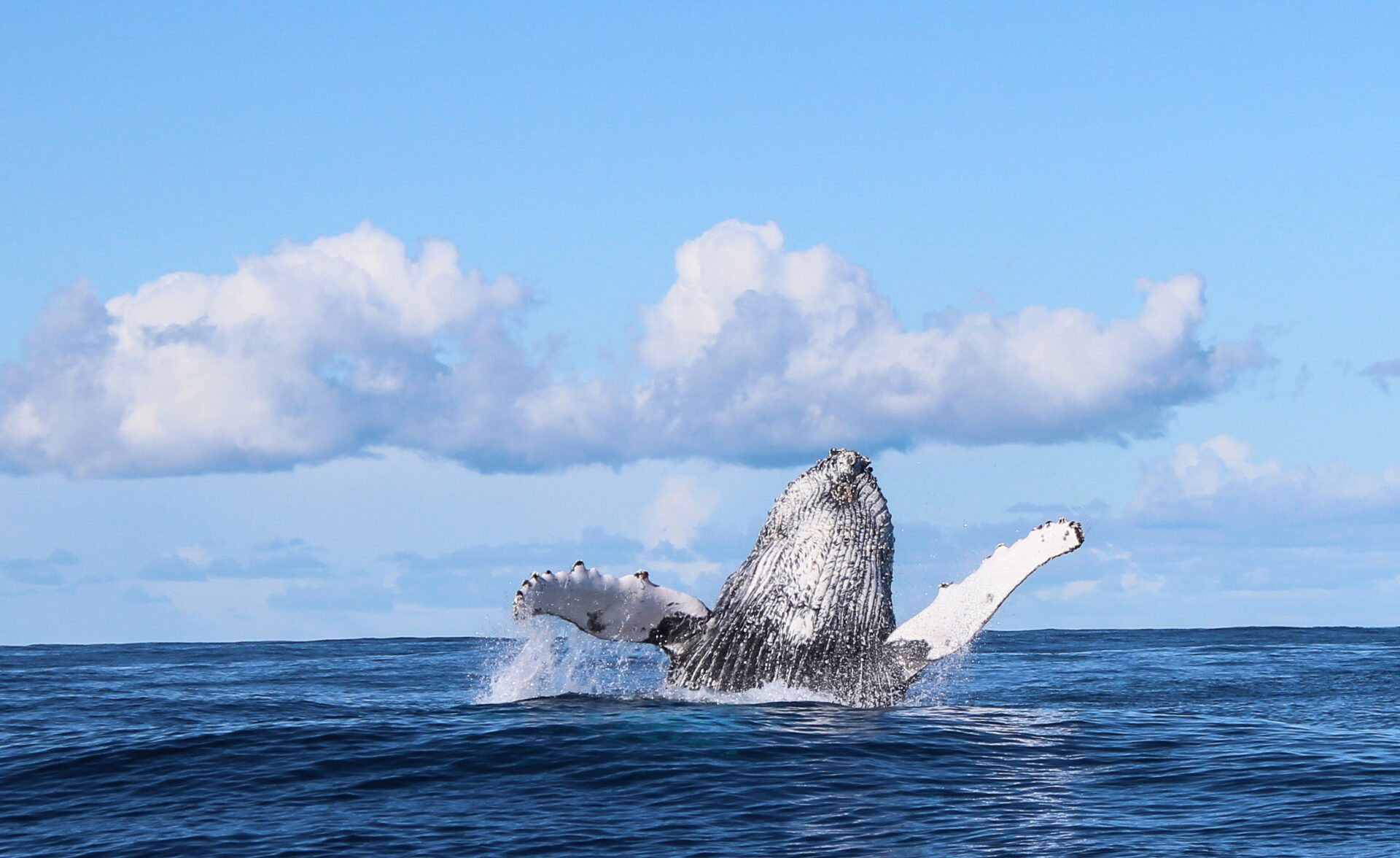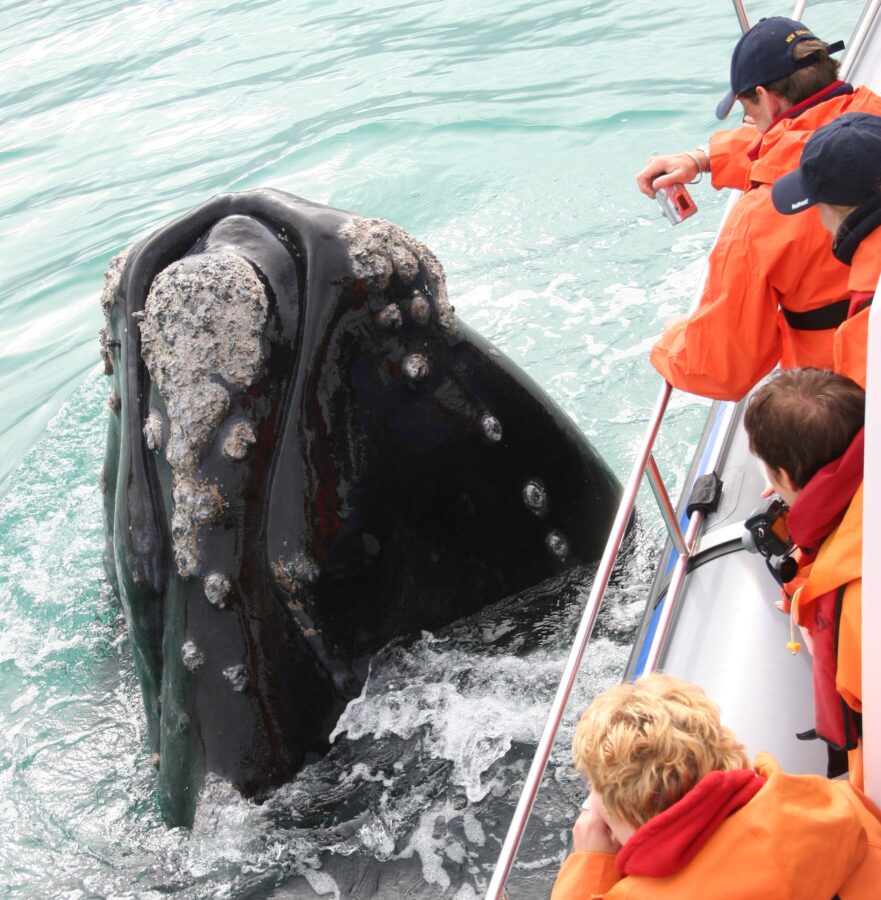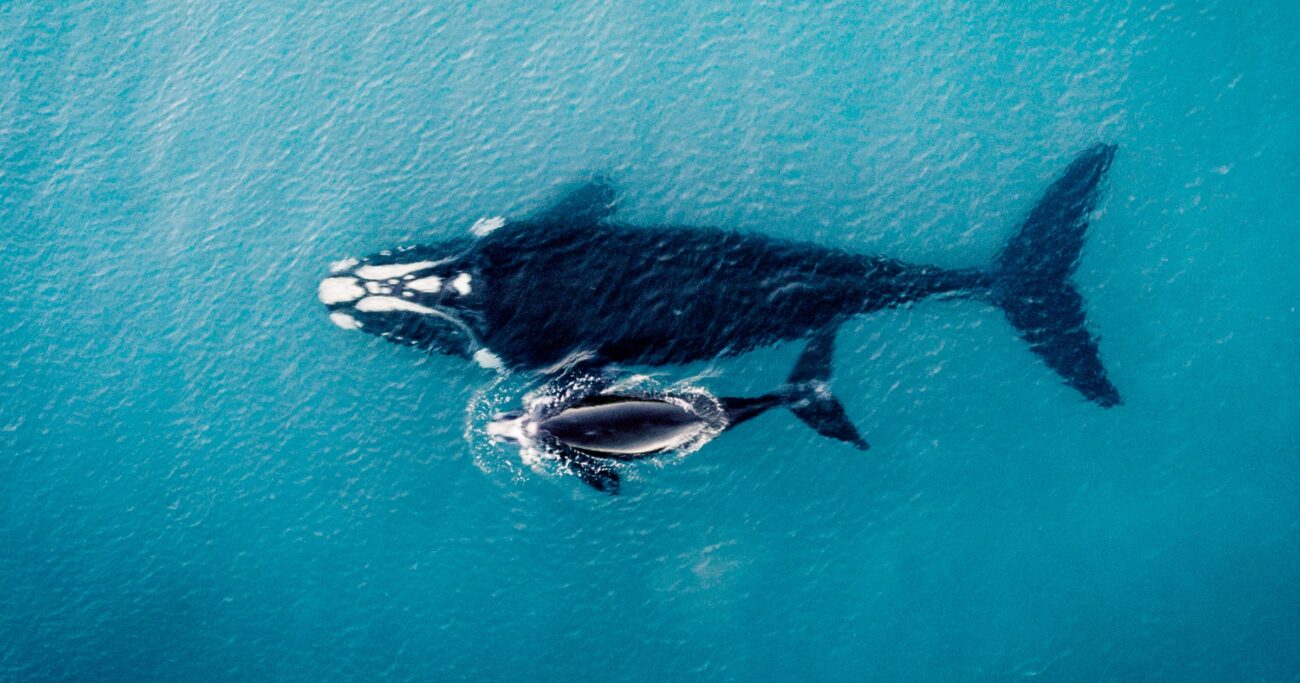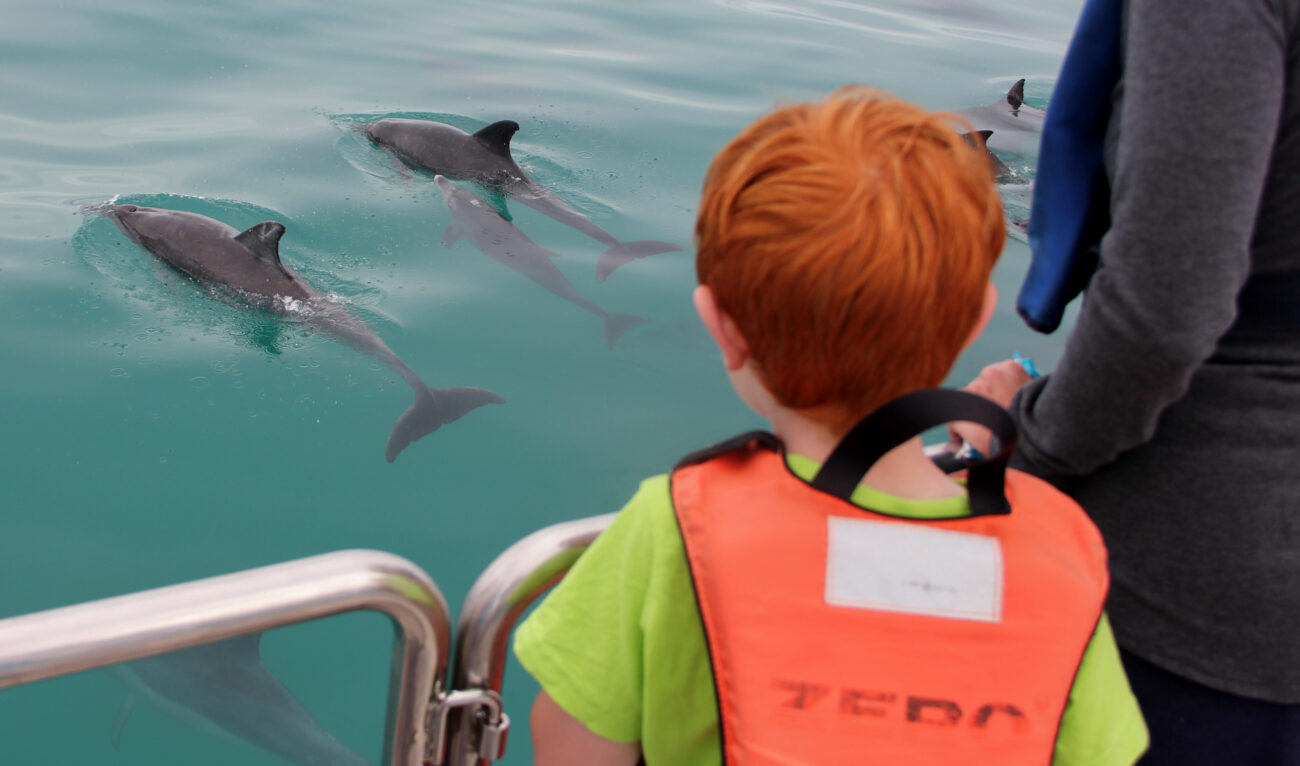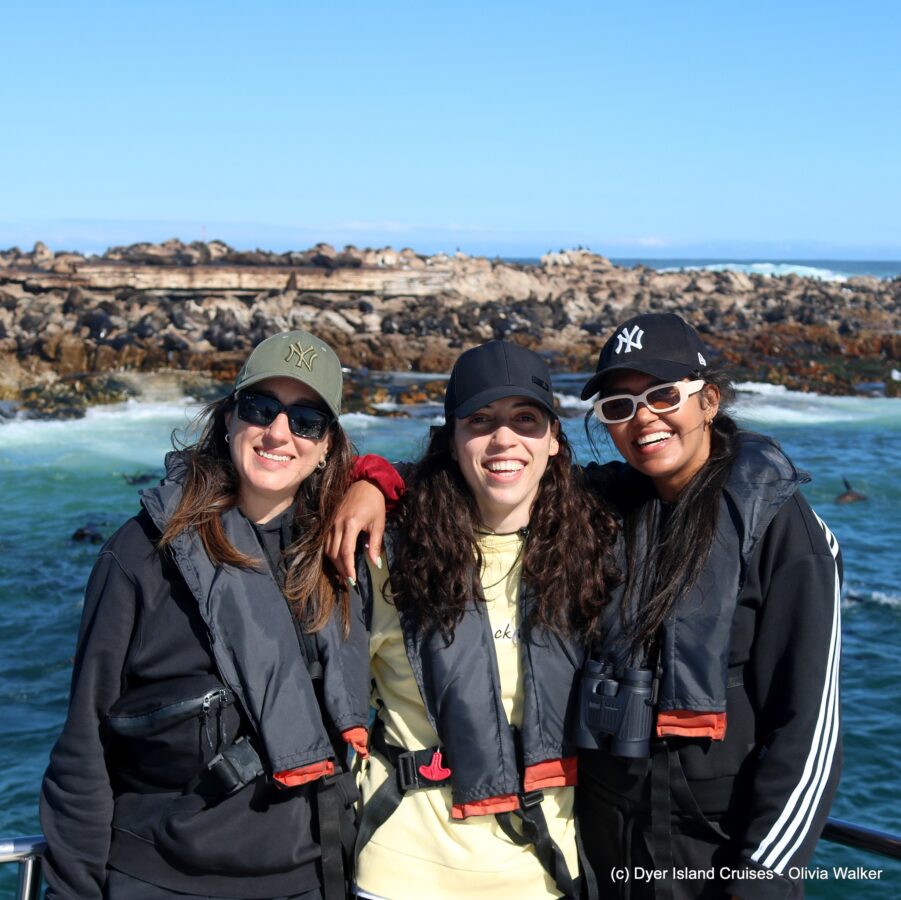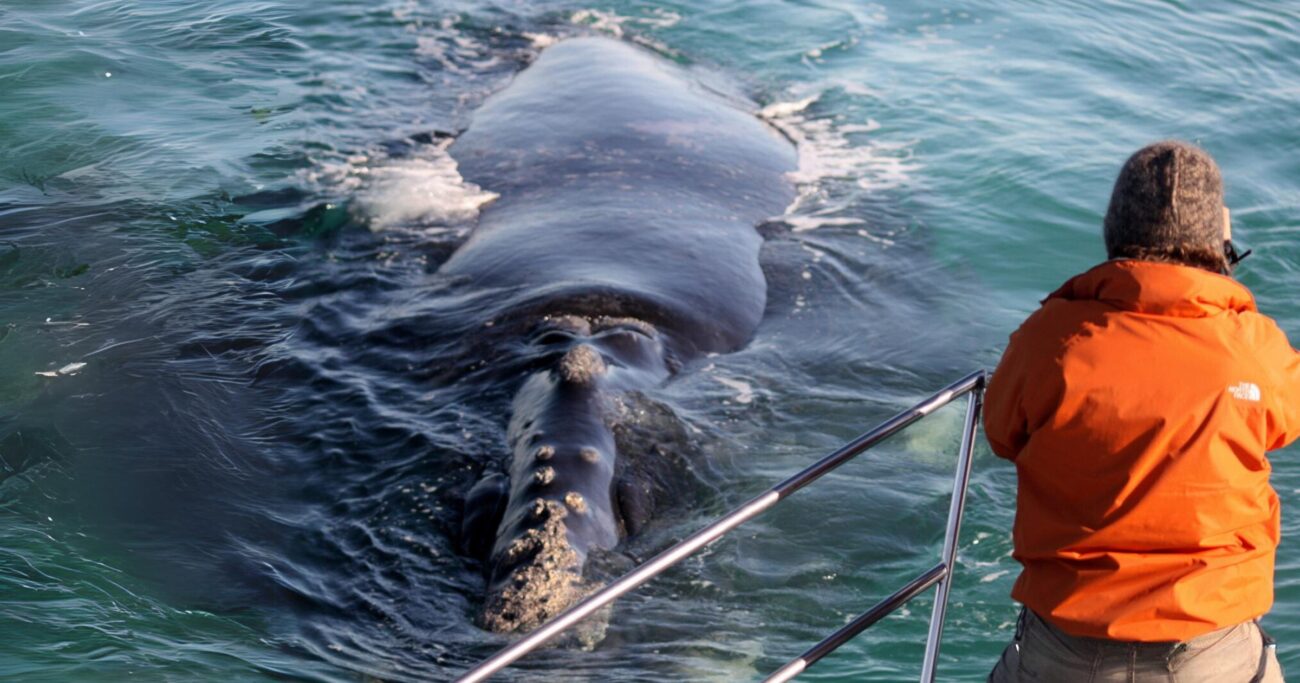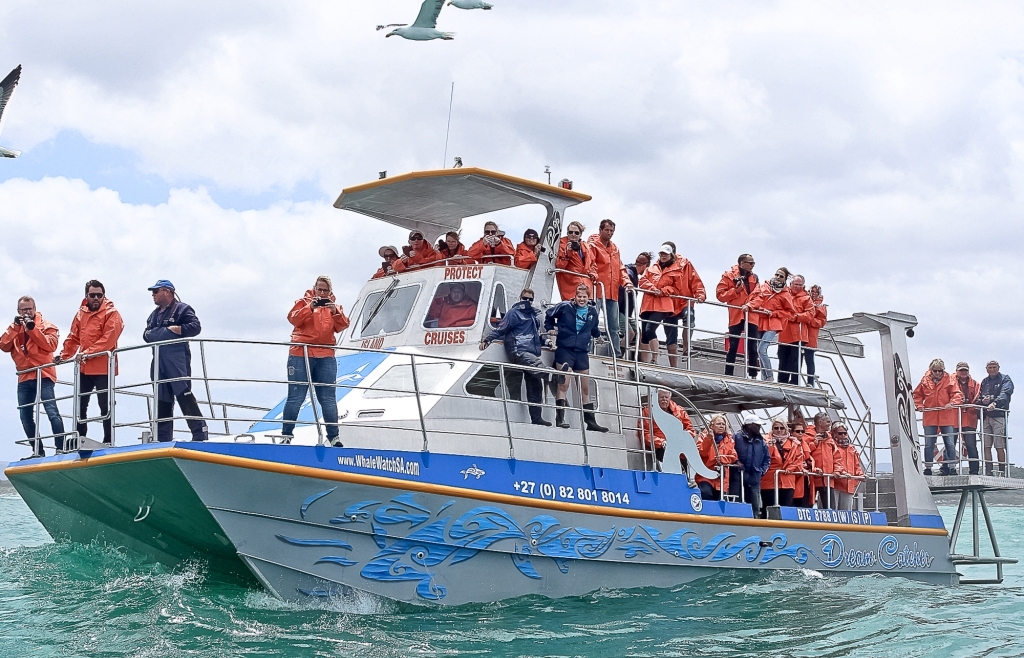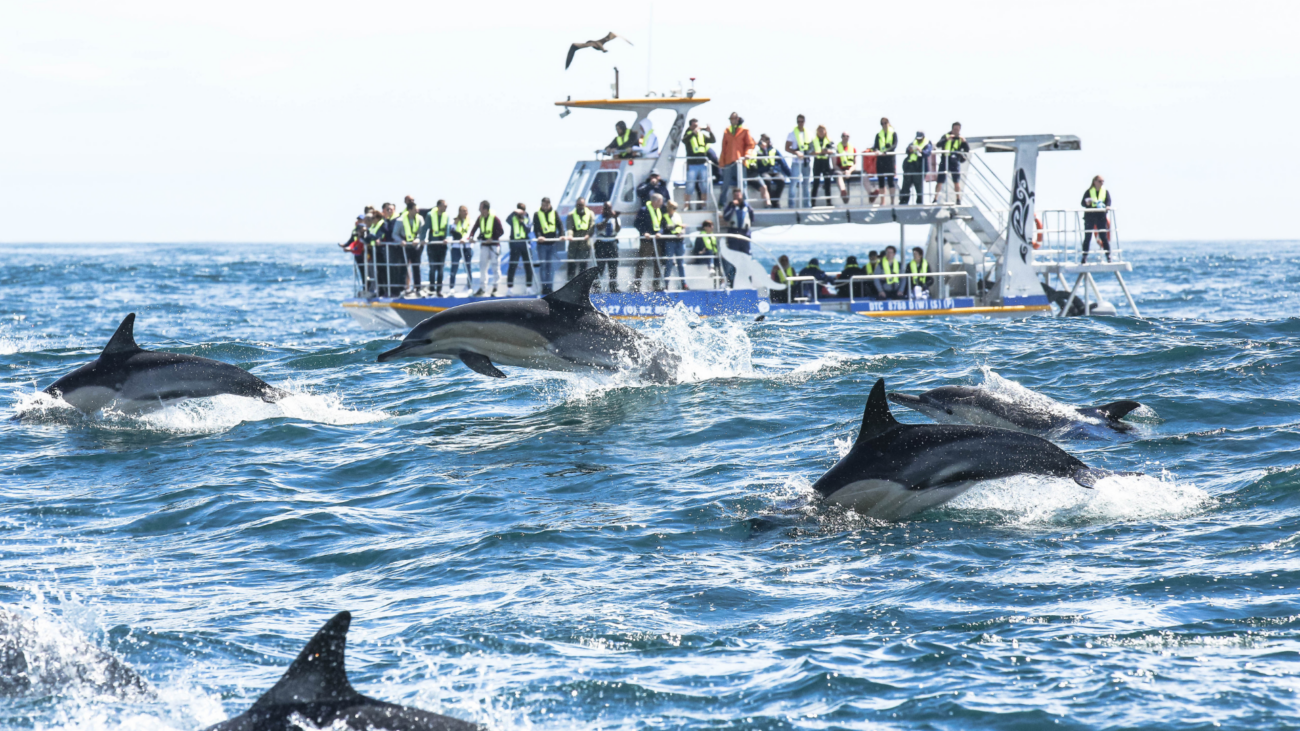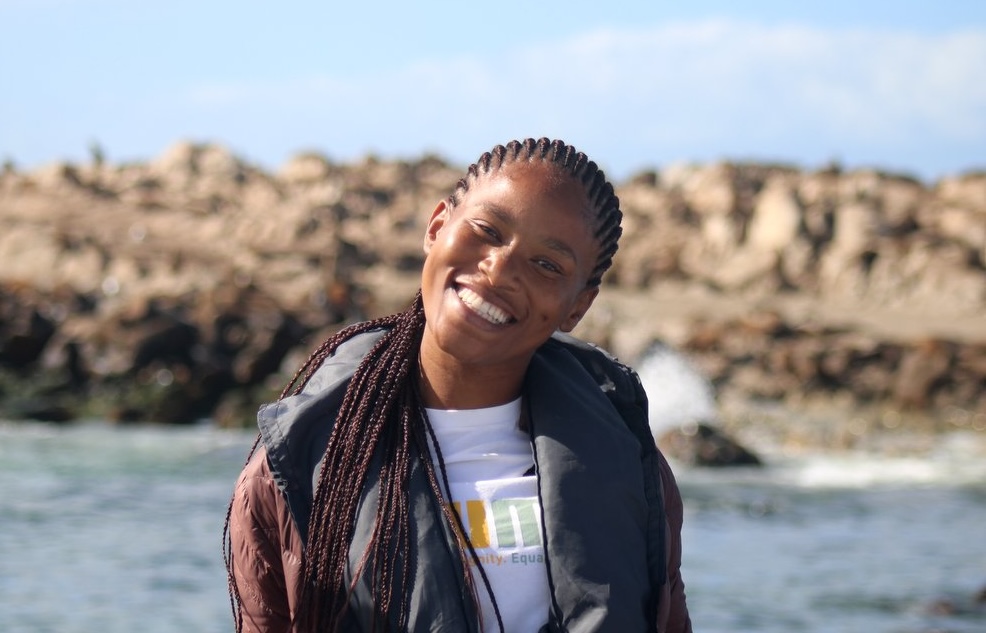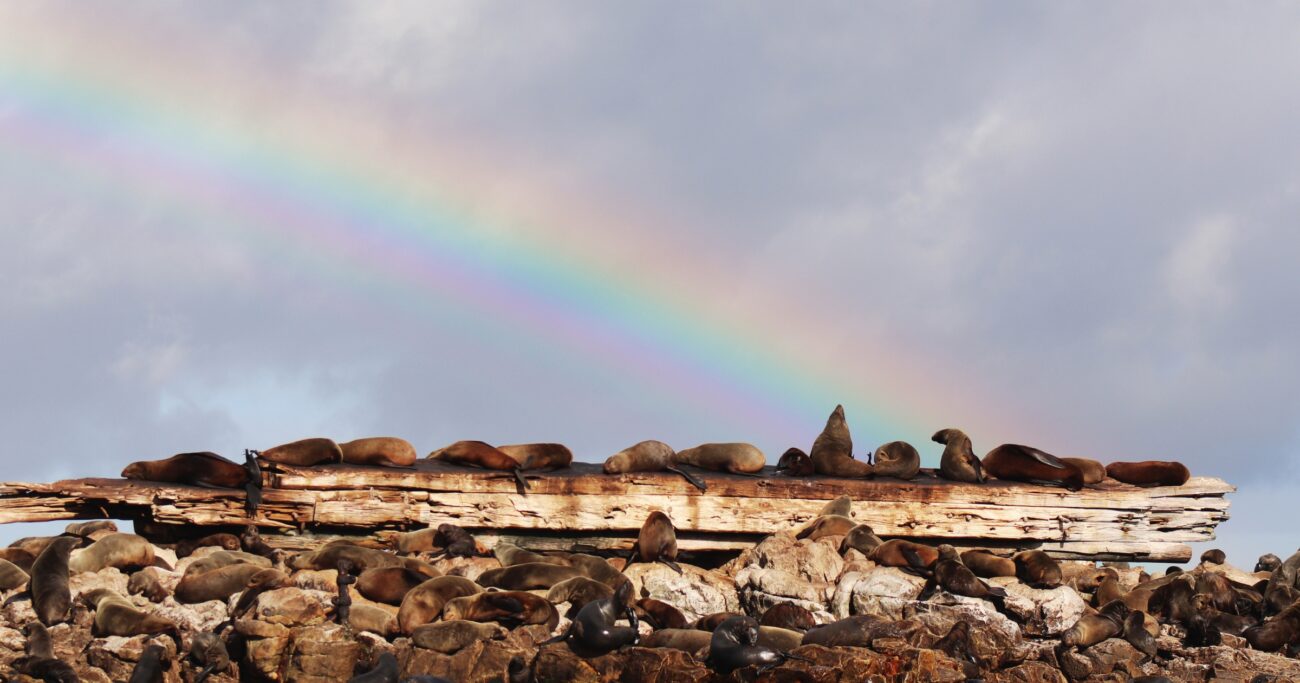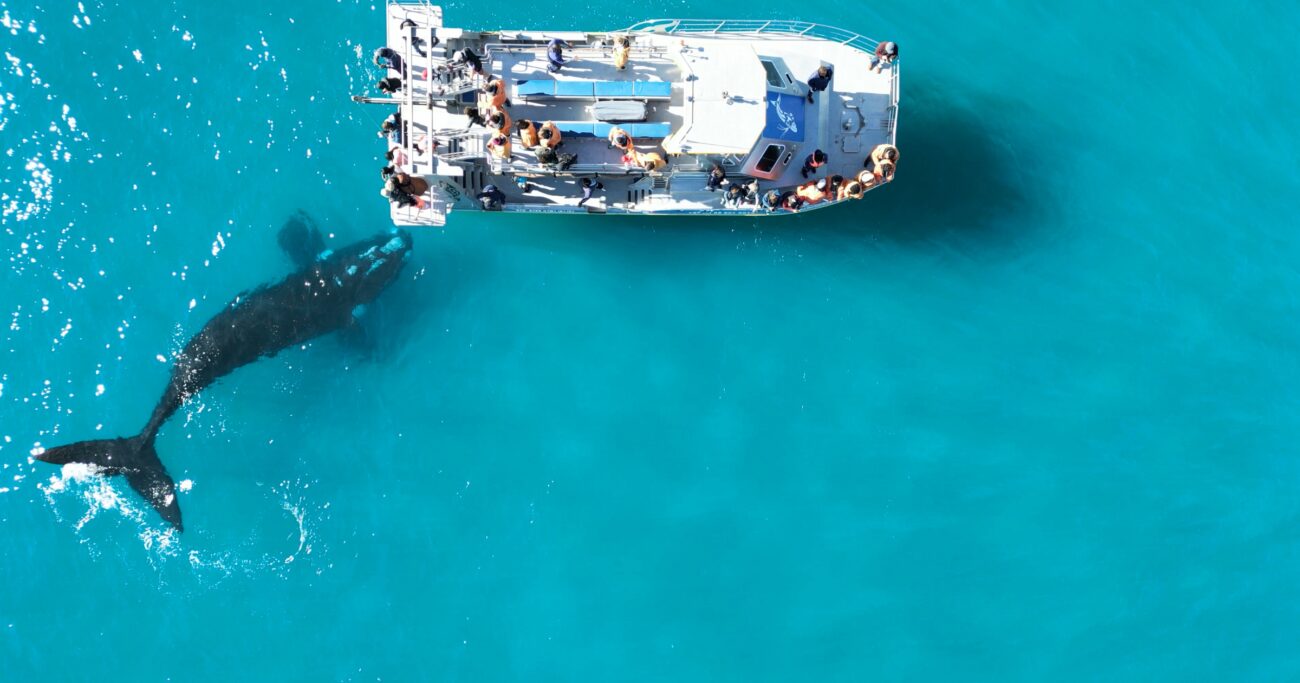What to Expect
- The Experience: Enjoy a safe and comfortable cruise into the heart of the Marine Big 5, where you’ll witness majestic whales (amongst other marine wildlife) gliding through their natural habitat.
- Marine Ecotourism: Conservation and research are central to our mission. Our Whale Tours continue to be recognised globally as a leading provider of marine based ecotours.
- Experienced Tour Guides: Our experienced marine guides know this area inside and out and are ready to assist with anything you need. Whether you’re curious to learn more about a species or need help on the boat, we’re here to ensure your journey is both comfortable and informative.
- Amazing Service: We provide complimentary coffee, tea, and water onboard, along with a hearty soup and bread on the return journey. We accommodate all dietary needs and are the only company in the area that requires guests to wear life jackets, offering a weather jacket to every client for added comfort.
- Comfortable & Safe Travel: The boat used complies with all the safety regulations set out by the marine authorities, with comfortable life jackets used during the trip.
Pre & Post Tour Accommodation
Detour Africa is here to arrange a seamless experience, including pre and post-tour accommodation, as well as convenient airport transfers. Please ask your consultant for assistance.
Passport & Visa Requirements
PASSPORTS
Ensure your passport has sufficient pages for all required visas, with a minimum of 2 clear pages for each country you’ll be visiting. Note that South Africa requires 2 clear pages upon entry, especially crucial if you plan to fly home from South Africa after touring multiple African countries.
Additionally, ensure that your passport is valid for at least six months after your departure date from Africa. It’s wise to keep a copy at home or with friends. Consider taking a photo of your passport and its contents, and emailing it to yourself for added security.
Using more than one passport (to avoid visa payments) is not advisable. For example, when entering Namibia, the immigration official must see the exit stamp for South Africa in the same passport for entry clearance.
VISA REQUIREMENTS
It is your responsibility to secure any necessary visas for your upcoming trip. Visa requirements differ based on your nationality and destination so please contact the various embassies or visa service agencies to check visa requirements. We also advise that you recheck visa requirements at least four weeks before departing for your tour as regulations can change.
Detour Africa will not be held responsible for clients being denied entry should they not be in possession of the relevant visas.
Ensure a smooth journey by having a valid onward or return flight or proof of alternative transportation to depart from the country where your tour ends. Alternatively, show proof of sufficient funds, such as a credit card, enabling you to purchase an air ticket for your departure.
Here is a useful link to check your visa requirements. Travel Visa Checker
Medical & Health Requirements
VACCINATIONS
To ensure a healthy and worry-free adventure, we recommend considering the following vaccinations for your journey through Africa: Hepatitis A (Havrax), Cholera, Yellow Fever, Tetanus Booster Shot, and Rabies.
It is crucial to note that this is only a general recommendation. For the most accurate and up-to-date vaccination requirements, we strongly advise consulting with your doctor or a travel clinic. They can provide personalized guidance based on your health history, ensuring you receive the most relevant and current information to stay protected during your travels. Your well-being is our priority, and we want you to embark on your African adventure fully prepared and in good health.
COVID-19
Detour Africa and our suppliers have implemented stringent COVID-19 protocols to prioritize your health and safety. While we diligently adhere to guidelines, it’s essential for clients to actively comply with each visited country’s requirements. Clients bear responsibility for their documentation, and we will not be liable if you are denied access to a country due to non-compliance.
In the unfortunate event of a client contracting COVID-19 during the tour, it’s important to note that all associated expenses, including testing, medical costs, hospitalization, and quarantine accommodation, will be the client’s responsibility. Additionally, no refunds will be issued for unused tour nights and services in such cases.
To maintain a secure and enjoyable experience for all, any guest not adhering to the established protocols may face expulsion from the tour. We emphasize the importance of securing adequate travel and medical insurance before arrival, ensuring comprehensive coverage for your peace of mind throughout your journey.
SEA SICKNESS
Please use anti-seasick medication well in advance if you are prone to motion sickness. We are not authorised to provide medication on-site.
Insurance
Medical insurance is a mandatory requirement. Ensure that your travel and medical insurance covers both cancellation and emergency evacuation in case of serious illness or injury, especially considering our tours often venture far from well-equipped hospital facilities. It’s important to note that credit card insurance might not offer sufficient coverage, so we strongly recommend obtaining a separate travel insurance policy for comprehensive protection.
Many of our customers opt for World Nomads Travel Insurance and highly recommend their services. While we’re not directly affiliated with World Nomads, we do encourage you to explore their offerings to secure a reliable insurance solution for your journey.
What to Pack
Please be advised that Africa experiences varying weather patterns, and conditions on your tour may differ. It’s important to check and monitor the specific weather for your destination, as temperature shifts can be significant.
Please keep in mind that it is cooler at sea than on land so always bring warm clothing. Comfortable closed shoes are advised.
Here are some suggested items to pack:
- Comfortable clothing for all weather conditions
- Waterproof jacket (rain season from May to Jul)
- Comfortable shoes
- Hat or cap
- Beanie and gloves for winter travels
Additional suggested items for your packing list:
- Camera with extra batteries and memory cards
- Insect and mosquito repellent (if visiting game reserves)
- Suntan lotion, sunblock, and after-sun lotion
- Sunglasses
- Small basic First Aid kit including painkillers, band-aids, after-sun lotion, eye drops, and anti-diarrhea tablets.
Transport
Transport to and from the start point is provided in comfortable air-conditioned minibuses.
The Boat
‘Dreamcatcher’ is South Africa’s first boat built specifically for whale watching. Designed for comfort and spaciousness, it features two onboard toilets, an observation deck, a PA system, and even a hydrophone! Dreamcatcher fully complies with all marine safety regulations, and comfortable life jackets are provided for the duration of the trip.
The boat undergoes annual inspections by the SA Maritime Safety Authority, meeting all its specifications. It is licensed to carry 50 passengers and 6 crew members. Safety equipment on board includes a first aid kit, radio, and cellular phone. Additionally, there is a spacious observation deck, perfect for photography enthusiasts.
Money & Currencies
Money can significantly impact your tour experience, so it’s essential to budget wisely. Africa isn’t known for being inexpensive, so prudent spending is key.
CASH
It’s advisable to have local currency for smaller purchases and to check the current exchange rates before traveling to ensure you have the most accurate information regarding currency exchange and acceptance.
In South Africa, the official currency is the South African Rand (ZAR). It is widely accepted throughout the country for transactions and purchases.
Safeguard your cash in a flat money belt worn close to your body, while keeping a small amount readily accessible for convenience.
CREDIT CARDS
Card facilities are available in major cities, though some establishments may impose surcharges. Visa and MasterCard are widely accepted, whereas Diners and American Express may have limited acceptance. Remember to inform your bank of your travel plans to avoid any card access issues while abroad.
ATM’S
ATM’S provide a convenient means to withdraw local currency upon arrival in a new country, although availability may vary. Ensure your cards feature chip and pin technology for secure transactions.
DEPARTURE TAX
This may be applicable in various countries when departing on international flights. Typically, these taxes must be paid in cash currency, with US Dollars often preferred. Departure tax amounts can range from US$10 to US$60, depending on the departure point. Be sure to account for these expenses when planning your travel budget.
TIPPING
Tipping is a customary practice in most African countries, particularly in restaurants where around 10-15% is considered standard for good service. Feel free to adjust this based on the level of service – more for exceptional experiences and, of course, no obligation if the service falls short.
When it comes to taxi drivers, tipping is discretionary and not always expected. If uncertain, your guides are excellent resources. They can advise you on local norms and suggest appropriate amounts in the local currency.
For our exceptional crew, tipping is a thoughtful way to acknowledge their hard work or those instances where they’ve gone above and beyond. To streamline the process, we recommend appointing one person in your group to collect contributions. Place the collected amount in an envelope and present it to your guide(s) at the end of the trip.
A suggested amount is 10 – 15 USD per person per day. Remember, tipping is a gesture of appreciation for outstanding service and is by no means obligatory. Your comfort and satisfaction are our top priorities throughout your journey.
Travelling with Children
Certain African countries require travelers entering or leaving the country with a minor (under the age of 18) to present an unabridged birth certificate that includes details of both parents. In some cases, if a child is traveling with only one parent or without both parents, additional documentation such as a parental consent affidavit may be required. This affidavit typically needs to be notarized. Travel regulations, including those related to documentation for minors, can change. Governments periodically review and update their travel policies, so it’s crucial to check with the relevant embassies, consulates, or official government websites for the most current information.
A child of 12 years and older will automatically be regarded as an adult and charged the full adult rate for all services. Children under 12 years of age will qualify for the lower advertised rate.

